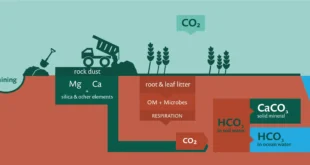- Generative artificial intelligence (AI) describes algorithms that can be used to create new content, including audio, code, images, text, simulations, and videos.
- Recent breakthroughs in the field of Generative AI have the potential to drastically change the way people approach content creation.
- Generative AI and transformers (that help predict the next word or a sentence) were were invented to understand languages better.
- Generative AI is finding applications across various domains for e.g., example, it is aiding drug discovery, as well as finding applications for other domains.
- Generative AI can be used to help businesses with patent research and market research.
- For example, if a company is trying to invent a new product, generative AI can be used to search through patent databases to see if the product has already been patented.
- Tools like ChatGPT are free chatbot that can generate an answer to almost any question it’s asked. Released in Nobember,2022 it’s already considered the best AI chatbot ever.
- Generative AI, has the potential to save businesses a significant amount of time and money as about 80% of the questions that financial institutions ask are easily solvable by Generative AI.
- However, people are still cautious about the use of Generative AI in highly-regulated sectors like the banking, financial services, insurance and healthcare sectors as the tools like ChatGPT, Bing and Bard are still replete with inaccuracies.
- For example: Samsung employees reportedly leaked the company’s secret information to ChatGPT after the semiconductor division allowed its engineers to use ChatGPT.
- Further the impact of Generative AI on jobs is yet to be seen.
SOURCE: THE HINDU, THE ECONOMIC TIMES, PIB
 Chinmaya IAS Academy – Current Affairs Chinmaya IAS Academy – Current Affairs
Chinmaya IAS Academy – Current Affairs Chinmaya IAS Academy – Current Affairs



